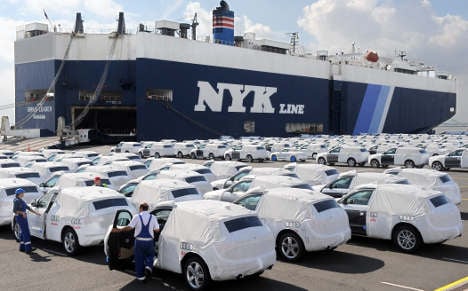The group of 10 car brands from Audi and Bentley through Porsche to Skoda and VW sold 545,500 vehicles last month, a year-on-year increase of 11.2 percent a statement said.
But the global pace of growth was slightly slower, easing to 13.4 percent from January through August for total sales of 4.70 million vehicles worldwide.
In July VW had reported an increase of 13.7 percent in seven-month sales, though results from the month alone were just 2.9 percent better than in July 2009.
“The global economy and international automobile markets still present risks, so we remain cautious,” the statement quoted VW sales director Christian Klingler as saying.
All of the group’s major markets showed a slight decline in sales growth, though the results were not detailed for each month but presented as a total since the beginning of the year.
In VW’s biggest market, China, sales increased by 41 percent to 1.29 million vehicles in the eight-month period from January through August, compared with a gain of 42.2 percent in the seven months through July.
US sales, on which VW is counting to overtake Toyota as the world’s biggest carmaker by 2018, increased by 22 percent from January through August to 239,000 units.
German sales fell by 19 percent meanwhile, a result that was worse than the one presented by VW in July.
A breakdown of brands showed that Audi was the group’s leader, while the Spanish carmaker Seat remained mired in difficulty.
AFP/mry



 Please whitelist us to continue reading.
Please whitelist us to continue reading.
Member comments